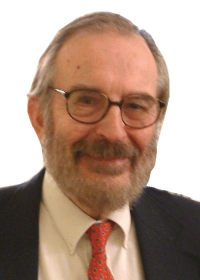Paul von Ragué Schleyer, a leading figure in physical organic chemistry, died on November 21st at his home in Georgia, USA. Schleyer pioneered the use of computational chemistry in characterizing new and widely used concepts and made vast contributions to a broad range of physical organic, organometallic, inorganic, and theoretical chemistry topics.
‘Paul Schleyer was one of the greatest chemists of the 20th century’, says Herbert Mayr, from Ludwig Maximilian University of Munich, Germany. ‘Paul’s impact on Organic Chemistry is only inadequately reflected by the impressive numbers of articles he had published. Of even greater importance was his influence on the thinking of a countless number of scientists who discussed with him their projects, collaborated with him, or just attended his lectures.’
Schleyer attended Princeton University gaining an A.B. degree in Chemistry in 1951, followed by Harvard University where he received a Ph.D. in physical organic chemistry under Paul Bartlett in 1957. In 1976 Schleyer moved to the University of Erlangen-Nuremberg, in Germany and became a frequent speaker at international meetings, forming close relationships with many chemists with whom he would continue to maintain an active correspondence. Schleyer extended his career well past the mandatory retirement age in Germany and continued to contribute to the field as Graham Perdue Professor at the University of Georgia.
PCCP would like to send our deepest condolences to Paul Schleyer’s family and colleagues.
Is C60 buckminsterfullerene aromatic?
Zhongfang Chen, Judy I. Wu, Clémence Corminboeuf, Jonathan Bohmann, Xin Lu, Andreas Hirsch and Paul von Ragué Schleyer
Phys. Chem. Chem. Phys., 2012,14, 14886-14891
D 3h CN3Be3+ and CO3Li3+: viable planar hexacoordinate carbon prototypes
Yan-Bo Wu, Yan Duan, Gang Lu, Hai-Gang Lu, Pin Yang, Paul von Ragué Schleyer, Gabriel Merino, Rafael Islas and Zhi-Xiang Wang
Phys. Chem. Chem. Phys., 2012,14, 14760-14763











